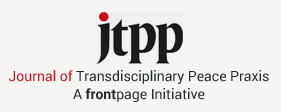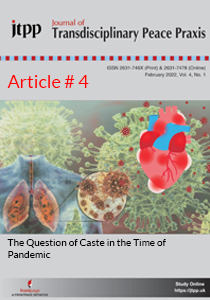Description
The Question of Caste in the Time of Pandemic
Santi Sarkar (Assistant Professor at the Department of Political Science, Directorate of Distance Education, Vidyasagar University, Midnapore, West Bengal, India)
As soon as the countries decided to implement the COVID-19 protocols, the term ‘social distancing’ overnight has become a buzzword and a novel universal norm to be abided by all. But when it comes to the Dalits (Untouchables in India), for them obeying social distancing norms is not strange at all. Because ‘pollution’ and ‘purity’ have always been central to the age-old Indian caste institutions. It is during this pandemic when the custom and the scientific norm imposed by the modern States converge. However, the categorical difference, practically not, is that while the former form of untouchability was legitimised by the fear of losing ‘caste purity’, the latter is being justified for saving lives.
In the present paper, the author wants to argue that the present lockdown has revealed the hierarchical structure of Indian society. Given the pervasiveness and obstinacy of the caste system, it is easy to surmise that some of the worst sufferers of the nationwide lockdown in India are the ‘untouchables’. The Dalit migrant labourers, both women and men, who are disproportionately confined to mostly menial and low-paying jobs became jobless once the economic activities were suspended. Traversing a series of instances and understanding the responses of both the society and State, the present paper wants to throw light on the social segregation and economic distress of the lower castes that only get perpetuated during the lockdown in India (came into effect on 24 March 2020).





